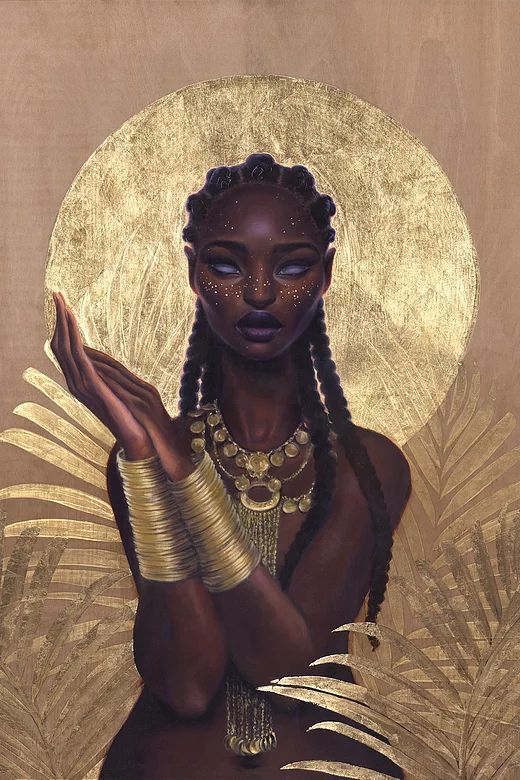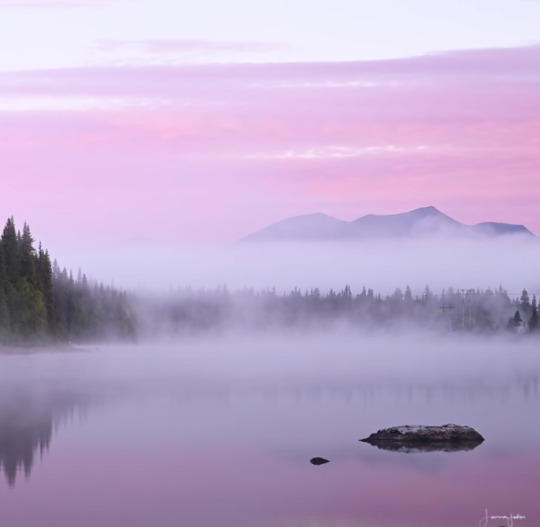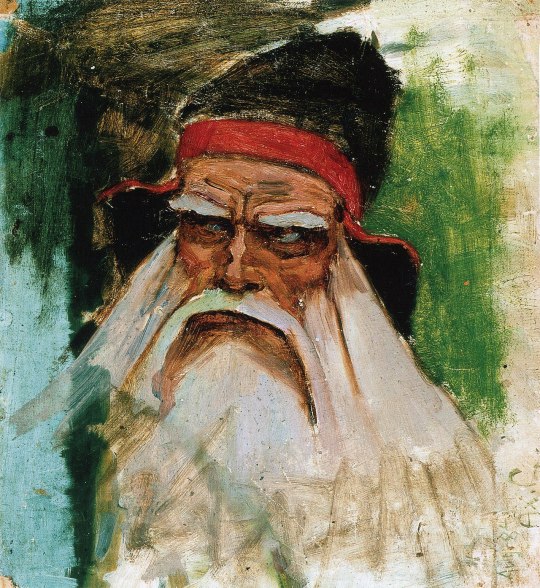#Tavastian gods by Mikael Agricola
Text
Iku-Turso
Iku-Turso, "the eternal Turso"; also known as Iku-Tursas, Iki-Tursas, Meritursas, Tursas, Turisas among others) is a malevolent sea monster in Finnish mythology, best known for appearing in the Kalevala. Nowadays Meritursas means octopus in Finnish, named after Iku-Turso, but originally tursas is an old name for walrus while the more common term is mursu.

His appearance remains unclear, but he is described with several epithets: partalainen (the one who lives on the brink, or alternatively, the bearded one), Tuonen härkä (the ox of Tuoni, Death), tuhatpää (thousand-headed), tuhatsarvi (thousand-horned). It was sometimes said that he lived in Pohjola, but that may be because Pohjola was often perceived as the home of all evil.
In some versions of the spell The Birth of Nine Diseases Iku-Turso is mentioned as the father of diseases with Loviatar, the blind daughter of Tuoni, the god of death. The Scandinavian giants (þursar, sg. þurs) had the ability to shoot arrows which caused diseases in people. This and the fact that þurs resembles Tursas gives credence to the idea that they may be related. Some runes tell that Meritursas partalainen makes pregnant the Maiden of Air (Ilman impi, Ilmatar). She later gave birth to Väinämöinen, which would make him a truly primeval creature. On the other hand, he is also mentioned as the son of Äijö (a name usually assigned to the God of sky).
As a god of war
In the list of Tavastian gods by Mikael Agricola, he is mentioned as the god of war: Turisas voiton antoi sodast (Turisas brought victory in war). It has been suggested that the god in the list is same as the Scandinavian god of war Tyr; however, this theory is not widely supported today.
In the Kalevala
He is mentioned several times in the Finnish national epic, the Kalevala. In the second cantos he rises from the sea and burns a stack of hay. Later, a giant oak grows from the ashes. The tree grows so large that it hides the sun and the moon and is cut down.
From the ocean rose a giant, From the acorn, quickly sprouting,
Mighty Tursas, tall and hardy, Grows the oak-tree, tall and stately,
Pressed compactly all the grasses, From the ground enriched by ashes,
That the maidens had been raking, Newly raked by water-maidens;
When a fire within them kindles, Spread the oak-trees many branches,
And the flames shot up to heaven, Rounds itself a broad corona,
Till the windrows burned to ashes, Raises it above the storm-clouds;
Only ashes now remaining Far it stretches out its branches,
Of the grasses raked together. Stops the white-clouds in their courses,
In the ashes of the windows, With its branches hides the sunlight,
Tender leaves the giant places, With its many leaves, the moonbeams,
In the leaves he plants an acorn, And the starlight dies in heaven.
Later, Iku-Turso is summoned by Louhi, the Lady of the North, to stop the theft of the magical artifact Sampo. Väinämöinen, the leader of the plunderers, grabs Iku-Turso from his ears and using magical words makes him promise to never return from the bottom of the sea.
Wainamoinen, brave and mighty, Asked the second time the monster, To the people of Wainola,
Seizes quick the water-monster, Urgently inquired a third time: Never while the moonlight glimmers
Lifts him by his ears and questions: "Iku-Turso, son of Old-age, On the hills of Kalevala!"
"Iku-Turso, son of Old-age, Why art rising from the waters,
Why is art rising from the blue-sea? Wherefore dost thou leave the blue-sea? Then the singer, Wainamoinen,
Wherefore dost thou leave thy castle, Iku-Turso gave this answer: Freed the monster, Iku-Turso,
Show thyself to mighty heroes, For this, cause I left my castle Sent him to his deep sea-castles,
To the heroes of Wainola?" Underneath the rolling billows: Spake these words to him departing:
Came I here with the intention "Iku-Turso, son of Old-age,
Iku-Turso, son of Old-age, To destroy the Kalew-heroes, Nevermore arise from the ocean,
Ocean monster, manifested And return the magic Sampo Nevermore let Northland-heroes
Neither pleasure nor displeasure, To the people of Pohyola. See thy face above the waters I
Was not in the least affrighted, If thou wilt restore my freedom, Nevermore has Iku-Turso
Did not give the hero an answer. Spare my life, from pain and sorrow, Risen to the ocean-level;
I will quick retrace my journey, Never since have Northland sailors
Whereupon the ancient minstrel, Nevermore to show my visage Seen the head of this sea-monster.
42 notes
·
View notes
Photo



Epeiumalat monet tesse,
muinen palveltin caucan ia lesse.
.
Many false gods are here,
that were worshipped far and near in the ancient times
.
Neite cumarsit Hemelaisetseke
Miehet ette Naiset.
.
Tavastians bowed down to themboth
men and women.
.
Tapio Metzest Pydhyxet soiia Achti wedhest Caloia toi.
.
Tapio bestowed traps from forestand Ahti brought fish from the water
.
Äinemöinen wirdhet tacoi,
Rachkoi Cuun mustaxi iacoi.
.
Väinämöinen was the smith of songs
Rahko divided the Moon in black
.
Lieckiö Rohot iwret ia puudhhallitzi ia sencaltaiset mwdh.
.
Liekkiö ruled herbs, roots and trees, and other such things.
.
.
Ilmarinen Rauhan ia ilman teiia Matkamiehet edheswei.
Turisas annoi Woiton Sodhast
.
Ilmarinen made peace and airand moved travellers forward.
Turisas brought victory in war
.
Cratti murhen piti Tavarast.
.
Kratti took care of an object
.
Tontu Honen menon hallitzi,quin Piru monda willitzi.
.
Tonttu ruled the goings in a room,as well as piru drove many wild
.
Capeet mös heilde Cuun söit,Calevanpoiat Nijttut ia mwdh löit.Waan Carialaisten Nämet olit,Epeiumalat quin he rucolit.
.
Kaves also ate the Moon from them.
Sons of Kaleva created meadows and others
.
Rongoteus Ruista annoi,Pellonpecko Ohran casvon soi.
.
But Karelians had thesefalse gods they prayed to. Rongoteus gave rye, Pellonpekko bestowed the growing of barley
.
Wirancannos Cauran caitzi,mutoin oltin Caurast paitzi.
.
Virankannos watched over oats,otherwise people would have no oats.
.
.
.
.
Sihen haetin ukon wacka,nin ioopui Pica ette Acka
.
I applied for a thunderstorm, so I got Pica and Acka
.
Sijtte palio Häpie sielle techtin, quin seke cwltin ette nechtin.
.
Ukko splashed nobly from the bottom.
And that then gave air and rain.
.
Quin Rauni Ukon Naini härsky,ialosti Wkoi Pohiasti pärsky.
.
Kekri increased the growing of cattle.
.
Se sis annoi Ilman ia Wdhen Tulon,Käkri se liseis Carian casvon
.
Hiisi bestowed victory over the forest people,
Vedenemä took fish into a net.
.
Hijsi Metzeleist soi woiton, Wedhen Eme wei Calat wercon
.
Nyyrikki gave squirrels from the forest,
Hittavainen brought rabbits from the bush.
. .
Menningeiset mös heiden Wffrins sait, coska Lesket hoolit ia nait.
Palveltin mös palio mwta, Kivet Cannot Tädhet ia Cwta
. .
Many other things were also worshipped
. rocks · stumps · stars and the Moon.
.
.
1 note
·
View note